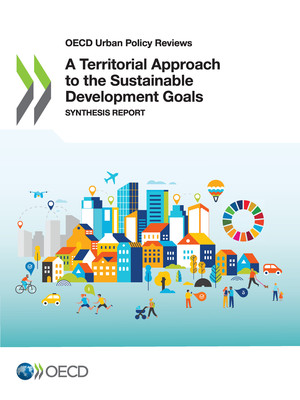Foreword
In the face of megatrends such as climate and demographic change, digitalisation, urbanisation and globalisation, cities and regions are facing critical challenges to preserve social inclusion, foster economic growth and transition to the low carbon economy. The 17 Sustainable Development Goals (SDGs) adopted by the United Nations in 2015, set the global agenda for the coming decade to end poverty, protect the planet and ensure prosperity for all. Although the SDGs were not designed by and for local and regional governments, they provide a universal ambition and valuable framework for all levels of government to align global, national and sub-national priorities within policies striving to leave no-one behind.
Executive summary
In the face of megatrends such as climate and demographic change, digitalisation, urbanisation and globalisation, cities and regions are facing critical challenges to preserve social inclusion, foster economic growth and transition to the low carbon economy. Indeed, the impact of megatrends on people and societies is context-specific and requires place-based responses to fit policies to local contexts.




